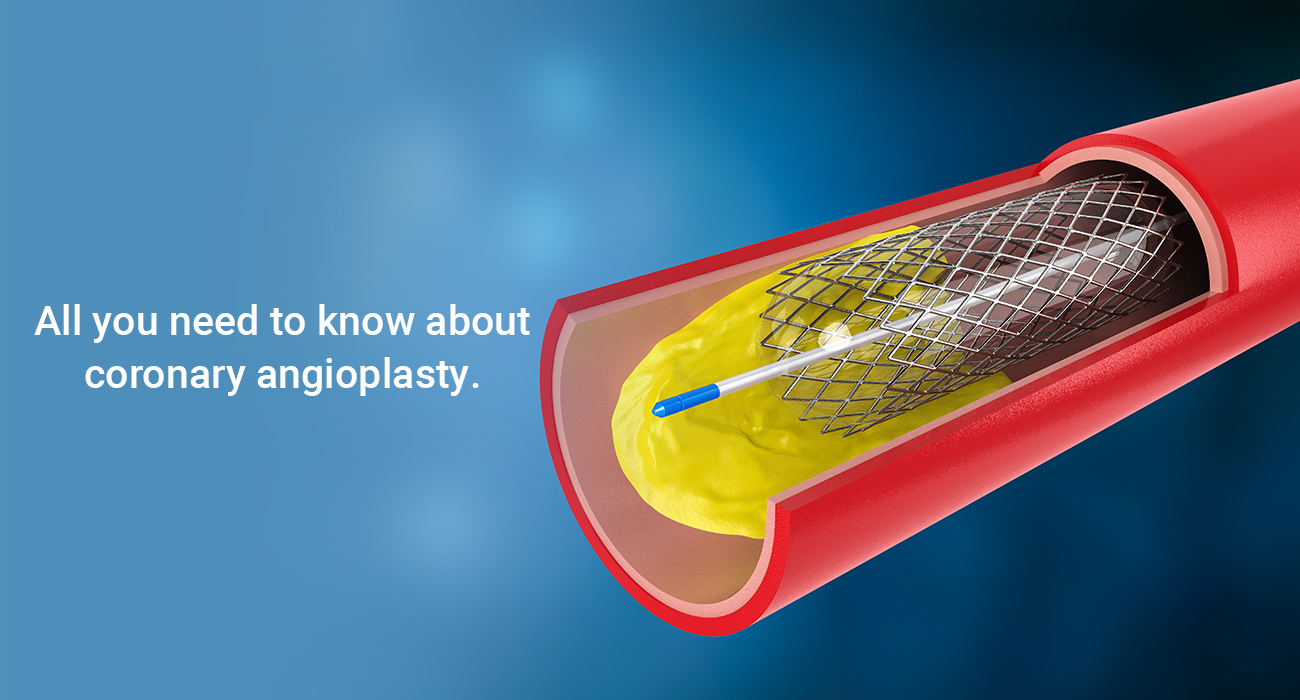09/24/2022
Coronary angioplasty is basically a cardiac surgical procedure that is required in order to open the blocked or clogged arteries of the heart; it is also widely known as a percutaneous coronary intervention. In this procedure, a tiny balloon catheter is inserted in order to open the blocked artery so that the blood flow through that artery can be improved and does not cause any kind of pressure on the heart.
When the arteries get narrowed or blocked due to the deposition of fat or plaque it causes a lot of pressure on the heart and obstructs the blood flow of it which might lead to severe life-threatening conditions such as heart attack, stroke, or heart failure. Some cardiac centers in Jaipur also use stents as a replacement to perform angioplasty. This small wire mesh tube known as a stent is placed in the blocked artery that helps to open the artery and decreases the chances to narrow back again, the stent is coated with medication that helps to keep the artery open and metal stents are barely used as it might cause infection. It is seen that the help of advanced medical procedures such as angioplasty can improve the condition of blocked arteries and reduce the symptoms such as chest pain and shortness of breath that causes damage to heart muscles.
Why is it required?
As mentioned earlier angioplasty is used to treat conditions that cause clogged or blocked arteries due to the build-up of fat deposits or plaque in the heart blood vessel. Atherosclerosis is a cardiac condition in which this fatty plaque gets deposited in the blood vessels. Angioplasty and stent treatment may be required in several conditions such as:
- Chest pain or angina
- In case of a heart attack where the opening of a blood vessel is required in order to reduce heart damage.
- Failure in improving heart health irrespective of medications and lifestyle changes.
- To restore blood supply to the heart
- Blocked or narrowed coronary artery
What are the risk factors associated with Angioplasty?
Every surgical procedure has some risk factor associated with it; similarly, angioplasty is also linked with a few risks but most of which are manageable. Some possible risk factors include:
- Heart attack
- Abnormal heart rhythm
- Stroke
- Blood clot
- Excessive bleeding at the site of placement of the stent
- Infection at the site of catheter
- Chest pain
- Discomfort
- Allergic reaction to the contrast dye used
- Kidney damage
- Rupturing of coronary artery
- Failure of the procedure
- Faulty stent or catheter
The procedure of Coronary Angioplasty:
- Before starting the procedure an expert anaesthesiologist uses local anesthesia based on the patient's requirement. A small incision is made in the groin, a wrist balloon is inserted in the affected artery and through the artery, the thin flexible tube called a catheter is inserted into the artery that reaches the affected coronary artery with the help of an X-ray video.
- After the catheter is in place then with the help of a thin wire, a balloon is delivered to the affected artery so that it opens wide. Then a stent is placed that inflates or widens the artery by squashing the fat deposit against the artery wall so that the blood can flow properly. The stent gets expanded and remains in place. The doctor then deflates the balloon and removes it.
- The entire procedure takes about 30 minutes to 2 hours based on the condition of the patient. The discharge depends upon the situation and recovery of the patient. Further, the doctor recommends a few required precautions such as avoiding heavy lifting, strenuous activities, driving, running, etc for a few weeks.
Eternal Hospital is one of the best cardiac hospitals in Jaipur. We have a specialized cardiac team consisting of specialized doctors, cardiac surgeons, and healthcare professionals with a lot of experience treating several critical cardiac cases. If you are looking for coronary angioplasty and stents in Jaipur then contact Eternal Hospital for expert treatment and care.

